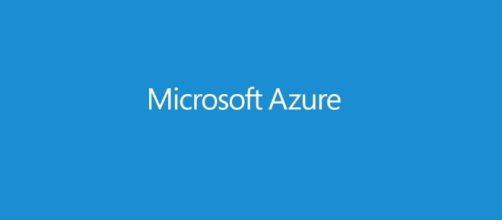Microsoft Azure is making some big cloud news this week. The Redmond-based software company has just released more details about the Microsoft Azure Stack, which slated for release this coming September.
According to the tech-focused site InfoQ, the Redmond-based company this week announced that its Azure Stack will be made available in September, which also the same month when rival VMware Cloud on AWS hits the cloud market. The software giant made the huge announcement at this week’s Inspire Developer Conference in Washington DC.
Azure Stack, Microsoft’s latest weapon in the cloud computing battle
First announced at the 2015 Ignite Conference in Washington DC, Azure Stack is an extension of the company’s Azure cloud platform. It brings the agility and fast-paced innovation of cloud computing both on premises and in the Azure cloud platform. But unlike the other cloud service providers, the company is offering its Azure Stack as a consumption-based service, just similar to its public cloud counterpart. Microsoft said that Azure Stack will allow developers to create and smoothly run applications on their own servers, provided that they will only used the Azure tools.
This new cloud service was originally designed as a software-only product, much like OpenStack.
However, the software giant has also added some integrated hardware solutions from leading hardware makers. These include companies like Dell EMC, HPE, Lenovo, Cisco and the Chinese tech giant Huawei.
Aside from having an integrated hardware solution, Azure customers will also have access to a wide range of third-party apps from the Azure Marketplace, including OS images from leading Linux OS providers Red Hat and SuSE. It also includes software programs like Kubernetes and Mesosphere.
In terms of pricing, the service will use two pricing models. First will be the: pay-as-you-use model, which similar to what the customers get with the basic Azure cloud service. The second model is the capacity-based, where customers will pay a fixed annual fee based on the number of physical cores.
In addition to the hardware partners and access to third party apps, customers will also provide an option of having Azure Stack delivered and operated as a fully managed service. These managed services will be handled and managed by IT infrastructure providers such as Rackspace and more. These managed service providers have already worked with Microsoft, delivering services for the Azure cloud platform.
Azure to beat VMware Cloud on AWS
Both Microsoft and VMware are vying for a big chunk of the fast-growing hybrid cloud technology market that is projected to reach about $92 billion, according to the latest data from MarketsandMarkets.
Some analysts believe that Microsoft has the upper hand in this cloud battle.
The company’s upcoming Azure Stack is expected to outpace VMware Cloud on Amazon Web Services in the battle for the control of the hybrid cloud technology market.
So how will Microsoft beat VMware Cloud on AWS? The first thing that might come to everyone’s mind is the price war, in which Microsoft reportedly has a clear advantage. Rival VMware is well known in the tech circle for charging a premium for its technology.
The other one is the market reach and partnerships. Azure Stack includes big-name hardware makers Dell EMC, HPE, Lenovo, and Cisco. This makes Azure Stack a top choice for most companies.


